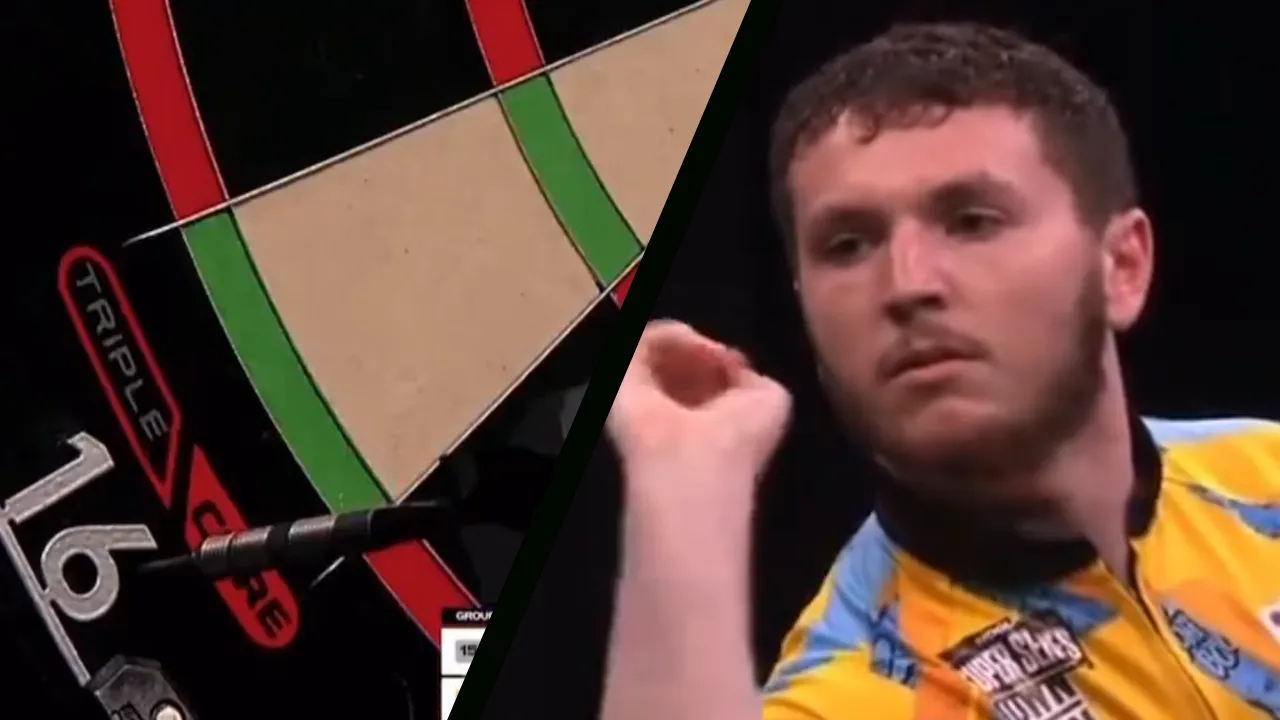"If you get an approach, you can't just ignore it. You are responsible for reporting that" - Matthew Edgar gives pro-insight into match-fixing regulations in darts
PDCWednesday, 11 December 2024 at 15:00

The topic of match-fixing in darts has been thrust right back into the spotlight recently following the eight-year ban of former prodigy, Leighton Bennett. Former PDC Tour Card holder and recent Lakeside competitor, Matthew Edgar has given a pro player's insight into match-fixing regulations.
"I'm someone who, I don't believe fully in: The first line of defence is punishments and deterrence. I believe the first line of defence is education, and obviously so do organizations, because that is the first line of defence in this case," begins Edgar. "When you get a PDC Tour Card, you need to go to a PDPA introduction. During that, you'll be told all the rules and regulations and all the key parts of your PDC contract."
Read also
"Also, depending on where you are playing, certainly within the professional ranks, you have to do an online education workshop," Edgar reveals. "Even in that, there are things that are deemed to be match-fixing, that isn't just losing a game on purpose. So you've got to be aware of these things and how you can easily fall foul to this."
Because of this, any players in trouble simply cannot claim that they didn't understand the match-fixing rules, as that simply does not hold water. "You've passed the online course, you've got a certificate to say you've passed it, so the education is there in place," Edgar explains, noting another interesting point. "At any point, you can go back on if you feel you forgot something, or maybe if something happens and you're a little bit unsure. You can go back onto that educational plan, get all the information you need and you've got access to that all the time."
It's not just this online course that acts as a barrier to potential match-fixers. "When you go into the venues, let's say you went to the MK Arena for a Pro Tour. The venue would be full of banners or signs, which remind you at all times," Edgar adds. "If you get an approach, you can't just ignore it. You are responsible for reporting that and then blocking the individual that has sent you that message."
It's not just the PDC, PDPA or the DRA that players can fall foul of either. If caught, it can quickly become a police matter. "Once they recover your mobile phone, which they do in these cases, they are able to access contact list, call history, text messages, emails, internet, browsing, photos, videos, social media messages and can even recover deleted content off your device," says Edgar. "There's no getting round that."
"Cases can be tracked and they are highlighted and flagged very quickly. When we're talking about these cases, some of them we're talking little tiny amounts where you wouldn't think it was even possible to flag something up from the small amounts of which we're talking. But there is millions of pounds worth that goes into keeping the game clean and the integrity of that. So one thing I will say is, I think everyone that's been involved has been caught and I think anyone who is involved will be caught," he concludes.
Read also
claps 0visitors 0
Just in
Popular news
Latest comments
- what a load of crocmedinabello19-02-2026
- So,it's a rubbish league,waste of time. Just put 8000 people in a building every Thursday,get them all drunk,and wonder why it's a complete joke. And forget every other player apart from 8. It's a ridiculous,inane,and needless so called competition.rick6718-02-2026
- Sorry,I've never been a professional darts player,but obviously from your comment,you have. So, going to your reply, you're blaming the management,not the player? So in that respect,he should get a different manager? That's basically all your comment is saying. Don't let him do money makers,which Barney said is easy money, instead of tournaments? Shake hands instead of trophies? Well I guess the manager knows best,as he has a big cut!rick6716-02-2026
- Sorry Mr rick67, erm what punditry credentials do you have to comment on a pundit? There's a reason why many top professionals have management teams. They know how to manage schedules etc so the players can just play. And how is Edgar wrong? Last year MVG failed to qualify by missing too many tournaments and underperforming. He's repeating the error this year so Edgar is right In calling this out.BandB15-02-2026
- Just get of Mardle,I didn't pay to watch him,and I don't want him for free! Let's see,how many world champions,either code,did you win? None! Now mason does it more as a player who was a floor player than you were putting pineapple on your shirt. Mardle,just go,you over inflated ego may follow. Tell you what,get on the seniors tour,and show everyone how good you weren'trick6715-02-2026
- Sorry Mr Edgar,erm what have you actually won to comment? Mvg has had his issues,but you have won a grand total of what? I make that nothing. So how can your comment be justified? Let him do what he likes,you do what you like, and we'll see what you win nextrick6715-02-2026
- Seems to be having a moan for no reason and using “Do-Gooder” as an insult makes no sense. It literally means someone who does good things!Wonker12-02-2026
- Mickey Vs mensur for the world champion? It's starting tomorrow,finishes in January!!rick6711-02-2026
- Oh well that's it then. Both these goofs will expect and demand premier league darts next year after this.richieburnettrocks10-02-2026
- Sincere apologies to Richie, I forgot yesterday, slightly belated but Happy Birthday to the great man. Certainly looking good for 59richieburnettrocks08-02-2026
Loading







